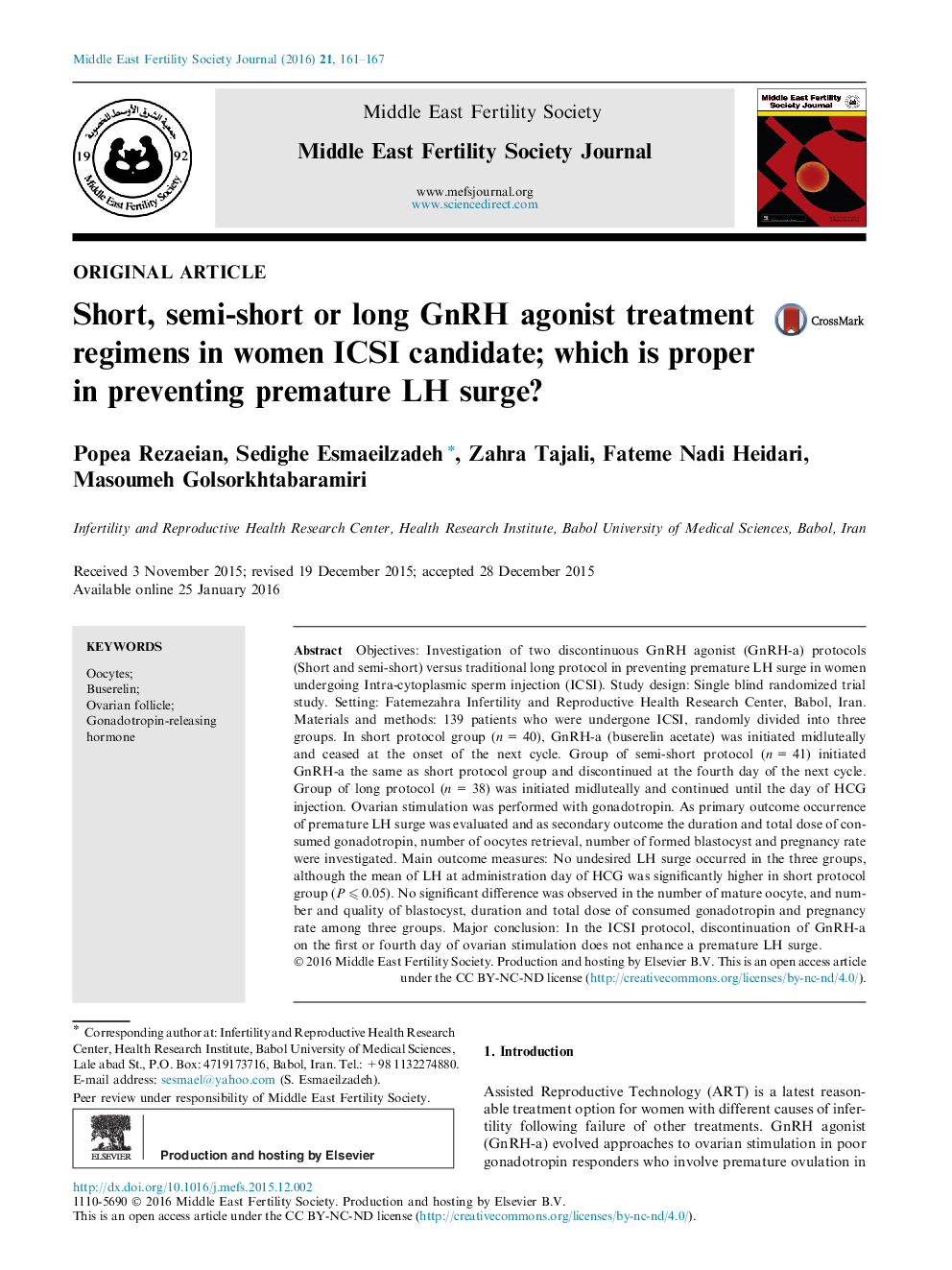| Article ID | Journal | Published Year | Pages | File Type |
|---|---|---|---|---|
| 3966040 | Middle East Fertility Society Journal | 2016 | 7 Pages |
Objectives: Investigation of two discontinuous GnRH agonist (GnRH-a) protocols (Short and semi-short) versus traditional long protocol in preventing premature LH surge in women undergoing Intra-cytoplasmic sperm injection (ICSI). Study design: Single blind randomized trial study. Setting: Fatemezahra Infertility and Reproductive Health Research Center, Babol, Iran. Materials and methods: 139 patients who were undergone ICSI, randomly divided into three groups. In short protocol group (n = 40), GnRH-a (buserelin acetate) was initiated midluteally and ceased at the onset of the next cycle. Group of semi-short protocol (n = 41) initiated GnRH-a the same as short protocol group and discontinued at the fourth day of the next cycle. Group of long protocol (n = 38) was initiated midluteally and continued until the day of HCG injection. Ovarian stimulation was performed with gonadotropin. As primary outcome occurrence of premature LH surge was evaluated and as secondary outcome the duration and total dose of consumed gonadotropin, number of oocytes retrieval, number of formed blastocyst and pregnancy rate were investigated. Main outcome measures: No undesired LH surge occurred in the three groups, although the mean of LH at administration day of HCG was significantly higher in short protocol group (P ⩽ 0.05). No significant difference was observed in the number of mature oocyte, and number and quality of blastocyst, duration and total dose of consumed gonadotropin and pregnancy rate among three groups. Major conclusion: In the ICSI protocol, discontinuation of GnRH-a on the first or fourth day of ovarian stimulation does not enhance a premature LH surge.
